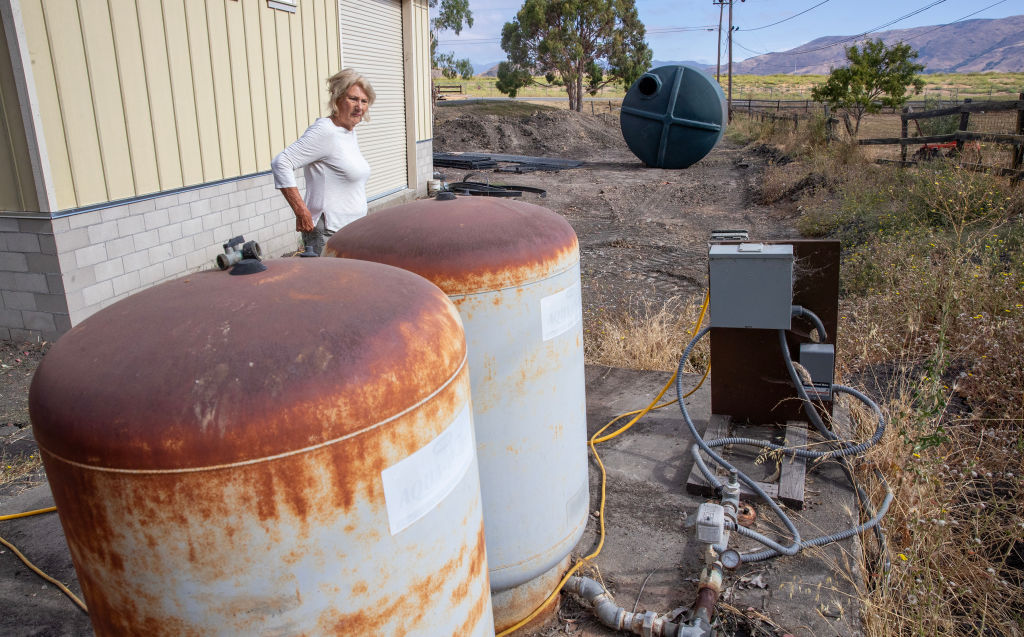Lobbyists Are Playing Both Sides of the PFAS Debate
PFAS, or “forever chemicals,” are linked to a range of health risks. In California, some lobbyists fighting a bill that would ban PFAS in consumer products are also lobbying for another bill that would help remove the chemicals from the water supply.

Kathy Borland looks over the well on her property, where her water has been contaminated with high levels of PFAS chemicals, on Wednesday, August 2, 2023, in San Luis Obispo, California. (Brian van der Brug / Los Angeles Times via Getty Images)
Major lobbying firms are raking in millions while playing both sides of the lobbying debate on California’s PFAS regulation. Also known as “forever chemicals,” these extremely persistent human-made chemicals appear in clothing, cleaning products, cookware, and increasingly in human bodies and are linked to a wide range of health risks.
A new investigation has found that some of the same lobbyists fighting a bill that would ban PFAS in select consumer products are also lobbying for another bill that would help remove the chemicals from the water supply through a PFAS Mitigation Fund.
“When you put the two together — both bills — [lobbyists are] getting paid to perpetuate the mess of PFAS and to clean it up,” said James Browning, founder and executive director of F Minus, a nonprofit that tracks fossil fuel lobbyists.
According to records requested by F Minus and shared with the Lever, nine big firms in California have made more than $2.8 million this year lobbying both for and against PFAS reforms.
For example, the firm Public Policy Advocates lobbied against the PFAS ban on behalf of the American Chemistry Council, an influential chemical industry trade association. At the same time, the firm lobbied for the PFAS mitigation fund on behalf of the Contra Costa Water District, which delivers water to more than half a million people in Northern California. F Minus uncovered the information about the two PFAS bills through an open records request, which produced lists of the bills’ supporters and opponents.
Such double-dealing illustrates a larger need to strengthen states’ lobbying firm disclosure rules, including requiring firms to divulge what positions their clients take on bills, said Browning. In eighteen states, including California, Colorado, and Massachusetts, registered lobbyists are required to disclose the bills they lobby on for each of their clients, according to F Minus.
However, only eight of those states require lobbyists to disclose whether their clients oppose or support the bills in question. That number does not include California, meaning much of lobbying firms’ actions in the Golden State — whose laws often help shape the national agenda — remain cloaked in secrecy.